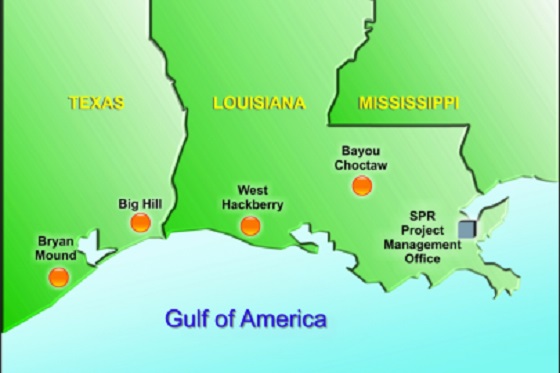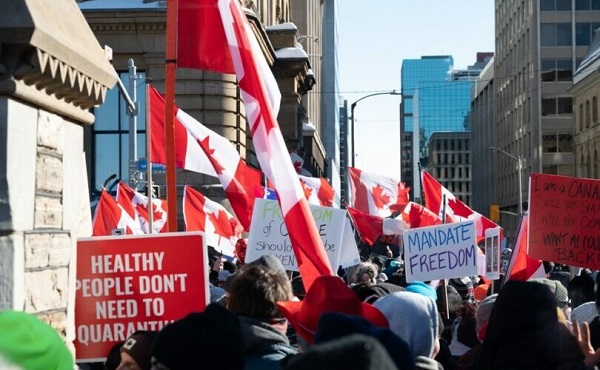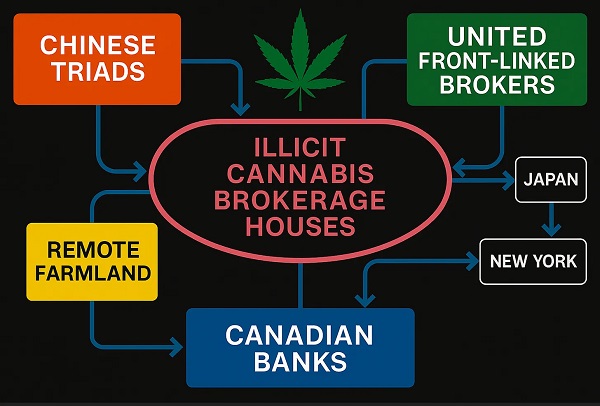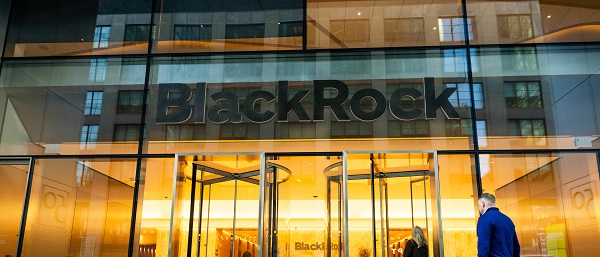Business
Canada remains in neutral while the world moves at warp speed
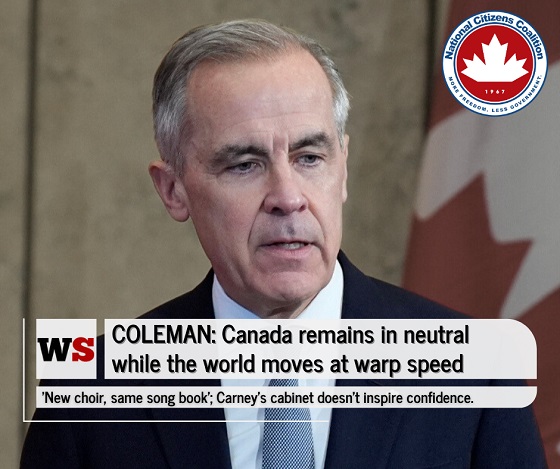
By Peter Coleman, President, National Citizens Coalition
‘New choir, same song book; Carney cabinet selections don’t inspire much confidence.’
The world is hurtling forward, but Canada, under Prime Minister Mark Carney’s ‘new’ Liberal government, seems stuck in neutral. Listening to CBC’s fawning coverage of Carney’s cabinet shuffle, I was struck not by the predictable nods to gender and regional quotas, but by the breathtaking arrogance of keeping some of the Liberal Party’s most incompetent figures in power. This shuffle signals more of the same from a party that’s governed with platitudes and failures for a decade.
Take Steven Guilbeault, shuffled from his disastrous tenure as Environment Minister to—wait for it—Minister of Canadian Identity and Culture. Yes, the former radical eco-terrorist and poster boy for carbon tax dogma and incoherent policies is now tasked with defining what it means to be Canadian. It’s tone-deaf and laughable. Guilbeault’s track record suggests he’s more likely to lecture us on electric vehicle mandates than celebrate the rugged individualism that built this nation. If Carney thinks this move shows bold leadership, or anything but a middle-finger to the West, he’s already misreading the room.
Then there’s Sean Fraser, who stumbled through Immigration, fumbled Housing, and now lands as Minister of Justice and Attorney General. Fraser couldn’t tell you how many immigrants entered Canada under his watch, let alone how many homes he failed to build. Yet here he is, entrusted with upholding the rule of law. Will he push for tougher sentencing for repeat offenders—something the Liberals have dodged for years? Canadians deserve a justice minister who prioritizes public safety, not one whose resume reads worse than any Parliamentarian in history.
And yet, the legacy media, ever loyal to the Liberal brand, still insists Carney is the smartest guy in the room. But his recent meeting with President Trump, where he was publicly lampooned and left empty-handed, suggests otherwise. Canadians are tired of waiting for Carney to prove he’s different. At the National Citizens Coalition, we’ve watched governments come and go since 1967. We judge them not by their press releases but by what they deliver for hardworking Canadians from coast to coast. So far, Carney’s cabinet reeks of recycled Trudeau-era failures.
There’s a glimmer of hope in Tim Hodgson, the new Minister of Energy and Natural Resources, replacing the woefully ineffective John Wilkinson. Hodgson brings real-world experience—Canadian Military service and years of high-level corporate expertise—that could prove to be useful in Western Canada. After a decade of Liberal neglect, the West’s resource sector is desperate to get oil, gas, and minerals to market without bureaucratic roadblocks. Hodgson’s background may well represent a welcome change, but he’ll need to move fast to undo years of damage.
The Liberal Party’s last decade of incompetence—marked by soaring deficits, housing crises, identity crises, rampant crime, and immigration chaos—has eroded Canada’s standing, and left us behind. The world is moving at warp speed, with global powers leveraging their resources to dominate markets and secure prosperity. Canada, blessed with resources the world envies, should be leading the pack. Instead, we’ve been mired in red tape and empty promises.
Carney’s government must deliver concrete, results-driven outcomes—now. The same old Trudeau-era ministers, like Guilbeault, Freeland, Joly, and Fraser, need to change course or get out of the way. Talk is cheap, and working Canadians are done with it. If Carney can’t shift gears and unleash Canada’s potential, we’ll remain a nation suck in neutral, bogged down in decline, watching the world pass us by. Time will tell, but this was not a promising start.
The clock is ticking.
Peter Coleman is the President of the National Citizens Coalition.
Business
Prime minister must excise terrible energy policies

From the Fraser Institute
Prime Minister Mark Carney recently unveiled his new cabinet. And there’s quite a lot of work to do.
Before his election victory, the prime minister exorcised a widely-despised element of Canada’s climate policy, the “consumer” carbon tax, which was imposed directly on Canadians for their consumption of energy (electricity, heating fuel, gasoline). At the same time, in response to President Donald Trump’s tariff war, the prime minister made grand proclamations of future energy glory. “Canada has a tremendous opportunity to be the world’s leading energy superpower, in both clean and conventional energy,” he said. “We are going to aggressively develop projects that are in the national interest in order to protect Canada’s energy security, diversify our trade, and enhance our long-term competitiveness—all while reducing emissions.”
Great plan. So what’s next?
Again, quite a lot. If Prime Minister Carney is serious about reforming Canadian energy policy so Canada can compete against a likely resurgent Trump-driven U.S. energy sector, he must follow this latest bit of tax reform and vocal boosterism with genuine regulatory reform. In other words, the Carney government must repeal the anti-energy regulations implemented by the Trudeau government.
First on the chopping block—Bill C-69, colloquially known as the “No More Pipelines Act,” which created massive uncertainty by introducing vague assessment criteria including “gender implications” for major energy projects including pipelines and LNG export facilities. If Ottawa simplified the project review process, it could help Canada access more lucrative markets for energy products outside the United States.
Then there’s Bill C-48 (colloquially known as the “Tanker Ban Bill”), which changed regulations for large vessels transporting oil to and from ports on British Columbia’s northern coast, effectively banning such shipments and limiting the ability of Canadian firms to export to non-U.S. markets. Tanking the tanker ban should be an obvious sail forward.
Next up, the Trudeau plan to cap greenhouse gas emissions from the oil and gas sector (at 35 per cent below 2019 levels by 2030), alongside major new regulations for methane emissions in the sector. These regulations will likely raise costs and curtail production. By removing them, Ottawa can increase the ability of Canada’s energy sector to compete against a rising U.S. energy sector.
Finally, the Trudeau government’s Clean Electricity Regulations will likely drive electricity rates through the roof while ushering in an age of less reliable electricity supply—a two-handed slap to Canadian energy consumers. Ending these misguided regulations is a no-brainer for the new government in Ottawa.
Prime Minister Carney’s first acts on the Canadian energy file look good. The carbon tax is half-dead (the industrial tax remains in place). And a new pro-energy rhetoric has displaced Trudeau’s “phase it out” framing of Canadian energy policy. But if Carney and his new cabinet are serious about unleashing Canada’s energy potential, reducing dependence on the U.S. market, reaching more lucrative foreign markets, increasing production, and so on, they better get cracking on a regulatory reform agenda lest they find themselves hamstrung by their predecessor’s regulatory legacy.
Business
Canadian airline WestJet ordered to compensate employee who refused the COVID jab

From LifeSiteNews
Alberta Justice Also Argento concluded that the major airline WestJet must pay Duong Yee, an accountant based in Calgary, $65,587.72 in damages.
Canada’s second-largest airline has been ordered by a judge to compensate one of its employees who refused to take the COVID shot and was “wrongfully terminated.”
In a ruling, Alberta Justice Also Argento concluded that the major airline WestJet must pay Duong Yee, an accountant based in Calgary, $65,587.72 in damages.
Court documents show that Yee, who worked for the company for 11 years, was put on unpaid leave on November 1, 2021, and was then fired from her job. Her termination came shortly after the federal government of now former Prime Minister Justin Trudeau had mandated that all workers of federally regulated industries receive the COVID shots.
Yee had tried to avoid getting the COVID shot through a religious exemption, which was denied by WestJet.
Justice Argento ruled that WestJet could have allowed Yee to work from home to avoid having to get the jab instead of firing her outright.
“The regulations only required the defendant’s employees who were physically accessing ‘aerodrome property’ to be vaccinated,” wrote Argento.
“They would not have applied to the plaintiff while she continued to work from home. The defendant was aware of the regulations, but did not consider whether the plaintiff could continue working from home as an alternative to dismissal.”
Justice Argento also observed in his ruling that the plaintiff’s “refusal” to get the COVID jab and comply with WestJet’s jab policy “did not impact her job performance,” and it did not “endanger the defendant’s employees or the public as the plaintiff was working from home.”
“While the plaintiff was wrongfully terminated, the surrounding circumstances do not attract aggravated damages,” noted the justice.
“The dismissal was not conducted in an unduly insensitive or egregious manner. Furthermore, the plaintiff led virtually no evidence explaining how the dismissal impacted her.”
Yee’s claims for both moral and aggravated damages were dismissed by the court.
In October 2021, Trudeau announced unprecedented COVID-19 jab mandates for all federal workers and those in the transportation sector and said the unjabbed will no longer be able to travel by air, boat, or train, both domestically and internationally.
This policy resulted in thousands losing their jobs or being placed on leave for non-compliance.
Many pilots and airline workers lost their jobs as a result but have fought back via lawsuits.
LifeSiteNews has published an extensive amount of research on the dangers of the experimental COVID mRNA jabs that include heart damage and blood clots.
The mRNA shots have also been linked to a multitude of negative and often severe side effects in children, and all have connections to cell lines derived from aborted babies.
Canada’s Vaccine Injury Support Program (VISP) was launched in December 2020 after the government gave vaccine makers a shield from liability regarding COVID-19 jab-related injuries.
Recently, VISP injury payments are expected to go over budget, according to a Canadian Department of Health memo.
-

 conflict1 day ago
conflict1 day agoInspired by Ukraine, Armed by the U.S., Reinvented by Tech: Taiwan’s New Way of War
-

 2025 Federal Election24 hours ago
2025 Federal Election24 hours agoJudicial recounts could hand Mark Carney’s Liberals a near-majority government
-

 Addictions2 days ago
Addictions2 days agoWhy the U.S. Shouldn’t Copy Canada’s Experiment with Free Drugs
-

 Business1 day ago
Business1 day agoFive key issues—besides Trump’s tariffs—the Carney government should tackle
-
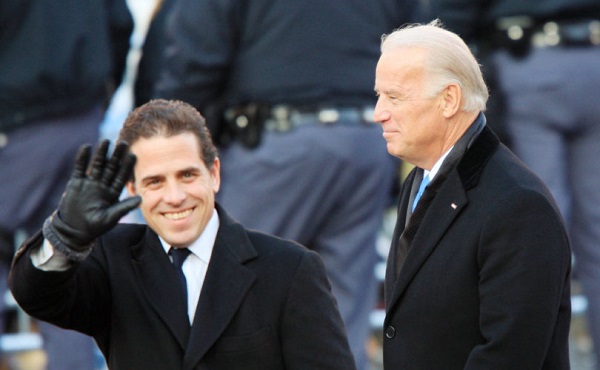
 MxM News1 day ago
MxM News1 day agoInvestigating Biden’s last minute pardons
-

 Alberta24 hours ago
Alberta24 hours agoAlberta group releases referendum question on leaving Canada, becoming ‘sovereign country’
-
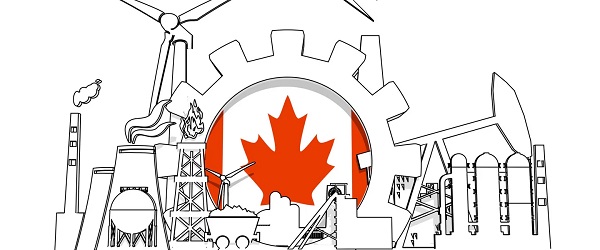
 Business16 hours ago
Business16 hours agoCarney’s new cabinet and media interviews fail to provide clarity
-
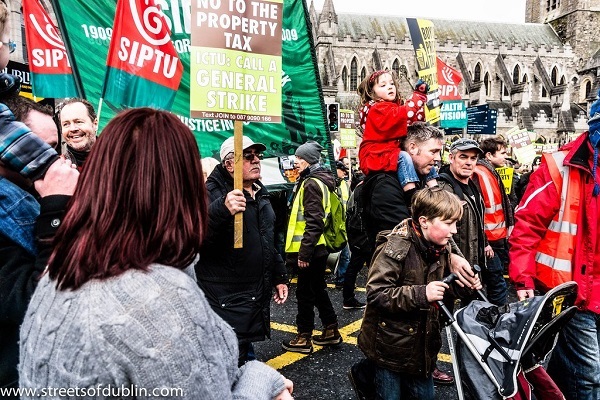
 Bruce Dowbiggin15 hours ago
Bruce Dowbiggin15 hours agoIreland Today: The Bittersweet Tradeoff Of Carney Embracing Europe



